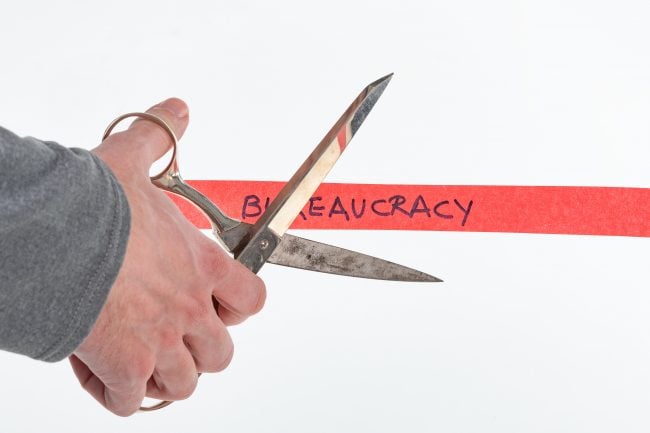 Source: AdobeStock
Source: AdobeStock
Community Development Financial Institutions (CDFIs) are an essential part of our financial ecosystem. After being certified by the Treasury, CDFIs are charged with providing safe and affordable financial products and services to low-income communities.
For almost 30 years, the CDFI Fund has helped communities through capital grants, equity investments and other resources. CDFIs provide a dollar-for-dollar match for most of the awarded funds, which are awarded on a competitive basis.
Recommended For You
But many CDFI credit unions around the country find themselves having trouble applying to maintain their CDFI status, a disruption in funding that these communities simply can't afford. Many have been told they need to "cure" certain "deficiencies," without being told what those deficiencies are or how they can be cured.
These institutions recently received blanket cure notices threatening that their certification status may be revoked, but without specifying the problem. The Fund has indicated that it expected credit unions could intuit the issues, but if they cannot do so, they only need to open a "service request" and wait three days for a response. If they have a follow-up, they can open another one and wait another three days.
We first raised this issue with the CDFI Fund in July. It's now September, and we're weeks away from a six-month blackout in applications the CDFI Fund will institute from Oct. 1 until April 3. After April 3, 2023, credit unions must comply with new application criteria, which have not yet been finalized.
Some credit unions following up on these notices have been told it has to do with the demographics of their board, which demonstrates a complete lack of understanding of the credit union structure. Credit union boards are democratically elected by their membership. Others have provided needed documentation – multiple times in some cases – but were put into cure status anyway.
The CDFI Fund assured CUNA it would provide the compliance guidance credit unions need to determine how to proceed before the end of August. The Fund did not issue the guidance until Sept. 8 – just 17 business days before the deadline.
Providing this guidance at the eleventh-hour leaves credit unions with almost no time to understand the Fund's instructions, take action and file compliant paperwork. So at the same time credit unions and other CDFIs around the country are jumping through confusing hurdles to remedy paperwork issues related to their CDFI recertification, they have a deadline looming.
Any pause in CDFI funding or termination of a CDFI designation will hurt communities working hard to recover from the pandemic and its economic effects. This would be a setback these communities can't afford.
Credit unions make up 469 out of 1,372 certified CDFIs as of July 14, the largest single type of depository institution. Credit unions also have the highest deployment of CDFI funds to these communities, representing 76.7% of all CDFI transactions by number and 56.8% by dollar amount.
The Fund must ensure that all CDFI credit unions that are able and willing to recertify are given the time and guidance to permit them to do so.
It's hard to believe that credit unions and other financial institutions that stand willing and ready to invest in communities left behind by the big banks and Wall Street are being impeded by bureaucratic matters.
Given the timeframes involved, the Fund should stop expending resources on a CDFI application process that won't be outdated in a matter of weeks. Instead, it should offer a provisional CDFI certification to any CDFI credit union that retained certification during the previous recertification year and has an application for recertification submitted by Sept. 30.
This temporary provisional status should allow these credit unions to continue serving their previously approved target markets, collect grants and awards, and complete Emergency Capital Investment Program loans through the completion of the application moratorium.
A new application process will be in place in April of 2023, and the CDFI Fund should direct its resources to ensure that process is efficient and effective, and that credit unions have ample guidance and resources to assist them in completing the new application.
This confusion is unacceptable at a time when these funds are needed to get communities back on track. The mission of the CDFI Fund is of upmost importance to credit unions, which strive to promote financial well-being for all and advance the communities they serve, and the Fund itself must be protected and strengthened. Bureaucratic paperwork issues are no reason to deprive distressed communities billions in capital, yet that's what we're seeing.
CDFIs deserve better, and our communities deserve better.
 Jim Nussle
Jim Nussle Jim Nussle, who served as OMB director under President George W. Bush and was a member of Congress from 1991-2007, is the president/CEO of CUNA in Washington, D.C.
© Touchpoint Markets, All Rights Reserved. Request academic re-use from www.copyright.com. All other uses, submit a request to [email protected]. For more inforrmation visit Asset & Logo Licensing.






